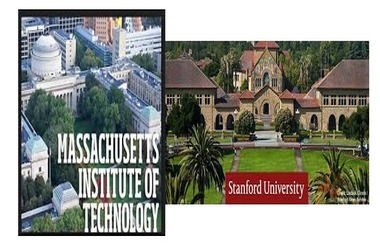
The Unit-e is the first project of Distributed Technology Research, a non-profit foundation established by hedge funded academics Pantera Capital Management LP to create decentralized technologies, as the cryptocurrency is called. Bitcoin is the original digital currency and the very first transaction network to enable parties to make direct transactions without trusting each other or relying on a centralized authority.
However, while it has been built up by developers, radicals and traders, mainstream acceptance remains unclear. This is partly the end product of its basic design, in which built-in limitations have constrained its performance and scalability and consequently decreased its viability as a daily payment unit, DTR said in a research article. Academics design a virtual coin that they anticipate can execute transactions more quickly than even visas.
Joey Krug, co-chief investment officer at Pantera Capital in San Francisco, who is also a member of the DTR council, said “The mainstream public is aware that these networks don’t scale. We are on the cusp of something where if this doesn’t scale relatively soon, it may be relegated to ideas that were nice but didn’t work in practice: more like 3D printing than the internet.’’
In the latter half of 2019, DTR plans to introduce Unit-e and intends to process up to 10,000 trades per second. This is worlds apart from the present level of 3.3 to 7 Bitcoin transactions per second and 10 to 30 Ethereum transactions. It is also several times faster than Visa, a centralized network that executes an average of about 1700 transactions a second.
The scalability obstacle of Bitcoin is a component of its design: the frequency in which new blocks can be produced, as transaction documents are known, and their maximum size is limited. Pramod Viswanath, a project researcher and a professor of electrical and computer engineering at the University of Illinois Urbana-Champaign, said that in order to accomplish higher speed and scalability, DTR deconstructed the blockchain technology that underlies most cryptocurrencies and actively sought to enhance almost every aspect.
The team initially sought to comprehend the performance limits blockchain in order to build technologies that function near these limits, Viswanath said. Academics have published papers on all facets of blockchain technology and depend on totally new methods designed to achieve broad consensus as well as innovative ways of sharding-a process in which each node upholds only portion of the blockchain, thus improving the speed-and totally new payment channel networks to attain its target speed.
The cryptocurrency sector is also aware of these issues and an actual number of measures to boost transaction speeds are being done. Crucial attempts include the Lightning Network, which should make crypto payments quicker and cheaper by eliminating the need to document each transaction on the blockchain, while yet another, Segregated Witness or SegWit, also intends to make transactions quicker.
David Chaum, a cryptocurrency visionary, also works on a totally new platform that allows digital currency to be exchanged faster. Unit-e’s success is certainly not a confirmed one. While the top notch technology should succeed in the long term, the cryptocurrency is in danger of not gaining momentum in the short term, said Andrew Miller, head of the Unit-e independent technical steering committee and assistant professor of electrical and computer engineering at the University of Illinois Urbana-Champaign.
The Swiss Foundation draws together economics, cryptography and computer science professionals and its members consist of professors from Carnegie Mellon University, Washington Universities and Southern California. It is financed by Pantera and some private actors, said Babak Dastmaltschi, Chairman of the Foundation Council, while refusing to provide additional details. Unit-e is also the first effort of the group and future projects can cover so-called smart contracts, Viswanath said.
Viswanath said “Bitcoin has shown us that distributed trust is possible but its just not scaling at a dimension that could make it a truly global everyday money. It was a breakthrough that has the capacity to change human lives but that won’t happen unless the technology can be scaled up.”